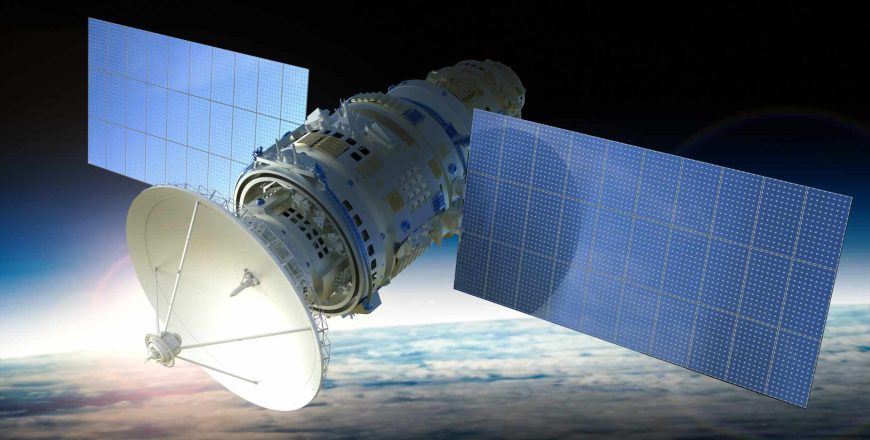TCP/IP Over Satellite

Course Overview
This course focuses on the application of TCP/IP protocol in satellite communications. Participants will learn how TCP/IP has accelerated the digital scenario and the basics of IP in satellite communications, including the techniques to ensure the functioning of a two-way satellite service.
The course will cover the performance of IP over satellite networks, including the challenges faced in the delivery of reliable and fast data. It will also address the technical difficulties faced in satellite communications (e.g., latency, jitter, error rates) and the solutions available to overcome these issues. Additionally, the impact of transport protocols on satellite links and the performance of TCP and UDP over satellite networks will be covered.
This comprehensive course is designed for network engineers, system administrators, and anyone involved in managing or operating satellite networks. It includes hands-on workshops to analyze packets via Wireshark and practice networking commands via the Command Prompt.
Target Audience
- Technical Marketing or Product Managers
- Pre-Sales Engineers
- Product Planners
- Network Consultants
- Technical Sales, Satellite Engineers
- Data Analysts
- Network Operations Engineers
- Application Consultants
- Professionals who wish to learn about the essentials of TCP/IP over Satellite communications
Duration & Training Format
- Classroom: 3 days
- LIVE Virtual: 21 hours
*Note:
- A minimum of 8 or more participants is required for a Classroom session to commence.
- A minimum of 6 or more participants is required for a LIVE Virtual session to commence.
- LIVE Virtual courses can be conducted for 5 hours or 7 hours daily. Please note that the number of training days will be extended if you opt for 5 hours daily.
Upcoming Course Dates
28 – 30 Jul 2025 (Mon – Wed), GMT +8
20 – 22 Aug 2025 (Wed – Fri), GMT +8
If you are keen on attending the above scheduled courses, please register your interest via our course enquiry form.
Course Objectives
At the end of this course, participants will be able to:
- Understand the behaviour of TCP/IP in satellite networks
- Analyze the protocols used in satellite IP performance
- Discover the issues in satellite communications
- Explore solutions to the technical complications
- Review TCP and UDP performance in satellite networks
- Explore ways to improve TCP/IP over satellite channels
Course Outline
- Recap of SATCOM Fundamentals
- Characteristics of LEO, MEO, GEO Satellites and their Pros and Cons
- Satellite Frequency Bands and their Pros and Cons
- Multiplex Schemes: FDMA, TDMA, CDMA, SCPC, MCPC, etc.
- Linear and Circular Polarization
- Satellite Beams: Global, Regional, Spot Beams, Steerable Beams
- EIRP and G/T
- Link Planning: Transmit Power, Antenna Gains, Free Space Loss, Receive Power, etc.
- Transponder: Carriers, Channel Assignments, Bent Pipe, Regenerative Type
- TCP/IP Fundamentals
- Seven Layer Networking Model Vs TCP/IP Suite
- Encapsulation, Decapsulation and Headers
- Addressing Mechanisms at Layers 2, 3, 4
- Layer 2, Layer 3, and Layer 4 Functionalities
- Switching and Routing Functions
- Application Layer Protocols in Satellite Communications
- HTTP (Hyper Text Transport Protocol)
- FTP (File Transfer Protocol)
- DNS (Domain Name Service)
- DHCP (Dynamic Host Configuration Protocol)
- POP (Post Office Protocol)
- Other Protocols: Telnet, SMTP, etc.
- Transport Layer Protocols in Satellite Communications
- TCP vs UDP
- 3-Way Handshake Mechanism and Working based on Acknowledgements
- TCP Behavior in Case of Congestion and Latency
- Overcoming TCP Issues in Satellite Communications
- TCP Acceleration vs Optimization
- TCP Spoofing and Performance Enhancing Proxies (PEP)
- UDP Preference for Real-Time Applications
- TCP and UDP Headers
- Window Adjustment in TCP
- Slow Start and Congestion Avoidance Mechanisms
- Multiple Flavors of TCP: Vanilla, Reno, New Reno, SACK TCP
- Security in Satellite Communications
- Hacking Mechanisms
- Security Protocols
- Issues of Security Protocols in Satellite Communications
- Incompatibilities of Security Protocols with TCP
- Virtual Private Networks
- Encryption
- Network Layer Protocols in Satellite Communications
- IP Addressing Scheme
- IPv4 vs IPv6
- Overview of Routing Protocols
- Ping and ICMP
- Data Link Layer Protocols in Satellite Communications
- Ethernet, MAC Addresses
- ARP vs RARP Protocols
- VLANs and IEEE Standards
- Spanning Tree Protocol
- Customer Tag Vs Service Tag
- Bridging Technologies: Provider Bridging (PB), Provider Backbone Bridging (PBB)
- Carrier Ethernet Overview
- Role of MEF, ITU and IEEE
- Standardized Services
- Service Operations, Administration and Management (SOAM)
- Reliability
- Point to Point and Multipoint Services in Satellite Communications
- Quality of Service and Class of Service
- Performance Management
- VoIP and IPLC over Satellite
- Characteristics of VoIP
- Challenges of VoIP Over Satellite
- QoS and Traffic Prioritization
- Compression Techniques
- Bandwidth Requirement
- Bit Rate Calculations
- Transponder Management
- VoIP Protocols
- International Private Leased Circuit (IPLC)
- International Ethernet Private Line (IEPL)
- Features of IPLC and IEPL
- VPN Via Satellite
- Satellite E-Line and EVPL
- Networking Workshop – Hands-On
- Using the Command Mode
- Practicing FTP Commands
- Practicing IPCONFIG
- Practicing PING Command
- Practicing TraceRoute Command
- Practicing other Network-related Commands
- Wireshark Workshop – Hands-On
- Understanding the Interface
- Packet Analysis Features
- Analyzing Layers 1, 2, 3 and Application Layer
- Analyzing TCP Segments
- Analyzing IP Headers
- Analyzing Frame Headers
- Troubleshooting with Wireshark
- Examples
A Certificate of Completion will only be issued upon achieving at least 75% attendance for the course.
Pre-requisites
Participants must have completed the ‘An Overview of Satellite Communications’ course before taking this course. This course assumes and builds on participants’ foundational understanding of SATCOM.



